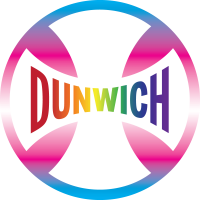Pixel typefaces

Jonathan Fabreguettes
Posts: 7
I am working on a small presentation about pixel typefaces and I am trying to list notable type design projects on this particular topic.
I realized how few typefaces I know in this category and thought the people at TypeDrawers would probably think of obvious projects that I had somehow missed.
So far I have listed:
Retail typefaces:
• Lo-Res (by Zuzana Licko)
• FF ThreeSix (Paul McNeil and Hamish Muir)
• Elementar (by Gustavo Ferreira)
• Bitcount (by Petr van Blokland)
• the work of SelfBuild type foundry
Custom typefaces for a particular use:
• Chicago bitmap (by Susan Kare)
• Girouette (by Jean-François Porchez)
• the work of Toshi Omagari for Arcade Game Typography
Related project:
• the FontStruct project
Thanks for reading and thanks in advance for your ideas.
I realized how few typefaces I know in this category and thought the people at TypeDrawers would probably think of obvious projects that I had somehow missed.
So far I have listed:
Retail typefaces:
• Lo-Res (by Zuzana Licko)
• FF ThreeSix (Paul McNeil and Hamish Muir)
• Elementar (by Gustavo Ferreira)
• Bitcount (by Petr van Blokland)
• the work of SelfBuild type foundry
Custom typefaces for a particular use:
• Chicago bitmap (by Susan Kare)
• Girouette (by Jean-François Porchez)
• the work of Toshi Omagari for Arcade Game Typography
Related project:
• the FontStruct project
Thanks for reading and thanks in advance for your ideas.
0
Comments
-
In the days of Flash, these were popular, among others:
- Minifonts library by Joe Gillespie
- Sevenet by Peter Bruhn
- Silkscreen by Jason Kottke
- 04 library by Yuji Oshimoto
Also:- In addition to Chicago: San Francisco, Monaco, Geneva and other “City” fonts by Susan Kare, as well as other Apple bitmap fonts by Bill Atkinson and Steve Capps
- Pixel Pac 01 by Pieter van Rosmalen
- Unibody by Underware
- Lomo Fonts and other work by Fidel Peugeot
1 -
A couple of notable early computer themed display types based on bitmaps:
Ruffa Computer Gothic by Gregory Ruffa 1971
Steve by Vince Whitlock 1973 (PDF link)
3 -
Thank you very much for your advice, I knew almost none of these references.I will take the time to look at them in detail.
0 -
Steve is indeed an early – and charming – design with a bitmap look. The 1973 date given by the Klingspor Museum is off, though. According to Mike Daines and Letraset catalogs, it came out in 1983.
2 -
I made a family called Raster Gothic Condensed back in the mid-2000s, based on a Macintosh screen font I designed in the '80s (using Fontastic). It's never been a big seller (by the time I finished and released it, the Flash pixel font craze had passed), but it was picked up and licensed for use on the Pixel smart watch, for which I added Cyrillic.2
-
Regarding related projects, maybe the brand-new Caps bitmap-font editor (custom made for the Playdate console) is of interest. You need an account to access it.
0 -
I have a whole category in my Fontexplorer with 250 pixel fonts... To loooong to list it
Others by Zuzana Licko : Emperor, Emigre, Oakland
0 -
wow, blast from the past with those 04 typefaces, I used them all the time but nearly forgot. heartening to see the site is still going.cofo sans pixel is a recent one I really enjoy. impressive character set, and I appreciate that it is willing to make some optical concessions on what a "pixel" is here and there
0 -
Amazing that the 04 site is still up. I remember it from way back when. Looks like it was last updated twenty years ago, and the Mac fonts are provided in .sit (StuffIt) archives.0
-
Around 1998–2003 Matthew Bardram’s Atomic Media was a pretty popular source for pixel fonts, including designs by Susan Kare and Miguel Hernández.1
-
This perhaps isn't notable as it was never popular, but Gulkave is a pseudo-pixel experiment of mine. The idea was to create the look of a pixel typeface without adhering to a grid. The idea goes all the way back to Alan Birch's LCD from 1981 which I was fascinated with as a kid. It looks like a true segmented LED/LCD typeface on first glance but on inspection, it's not. I used a similar tactic with Computechnodigitronic 12 years ago. Gulkave is the pixel version of that concept. With Gulkave, not only are the lines off-grid but the tightness of the curves varies as needed.
Speaking of Alan Birch: Bitmax & Synchro are certainly notable.2 -
Thank you very much, I discover a lot of things.
I have also realized since a few years (this research confirms it to me) what a significant proportion of typefaces "disappear", are no longer available a few years or decades after their creation (but this is a quite different topic).
2 -
Toshi Omagari’s “Arcade Game Typography: The Art of Pixel Type” would certainly be worth a look: https://thamesandhudson.com/authors/toshi-omagari-718403
-
There was a custom bitmap font with very cool OsF included with the original RoboFog, long before RoboFab or later Letterror/Petr tools, probably my favorite pixel font ever. I can’t seem to find any readable screenshots of it.
Also dig the old Beagle Bros programs Shape Mechanic and Font Mechanic for the Apple //e and //c.
0 -
Among the beautiful things I came across, I wanted to share 2 things:
• a webpage where you can play with a variable version of Elementar:
https://hipertipo.gitlab.io/elementar2/navigator/
• some photographs of the original drawings of Zuzana Licko Lo-Res:
https://twitter.com/ANRT_type/status/936399628412637184
Thanks again
1 -
There are more or less anonymous too. They are still in use when a computer boots. First the Bios using low resolution, then at first stages of the installer of an operating system.
20 years ago I developed automatic tests for the Debian installer, booting in a virtual machine and reading the screen with a simple OCR. There where 4 different fonts used.
I have a collection of bitmapped fonts in different sizes and formats. Smallest is 3x3. Width 6 x height 8 is good readable for Latin-1. Other popular formats are 16x12 and 16x32.
Formats range from literal definition in code, all characters in a small PNG to TTF.0 -
Here are some archives of bitmap fonts from old Apple and IBM systems:
https://www.kreativekorp.com/software/fonts/apple2.shtml
https://int10h.org/oldschool-pc-fonts/fontlist/
I also released a pixel font family last year that's loosely based on the old 8x8 pixel fonts used in Atari and Nintendo games.
https://github.com/justinpenner/player-sans-mono
And I highly recommend Toshi's book on video game typography as others have mentioned!
0 -
Almost forgot: I released a set of fonts based on the Atari home computer screen fonts called Atari Classic, starting back in the nineties. I've updated them several times and recent versions have been included in Atari home computer emulators, IDEs, and peripheral emulators, such as the amazing FujiNet device, which allows old Atari computers to connect to servers on WiFi networks and the internet.1
-
I tried to add some of the display characteristics of CRT displays back into the pixel fonts of the Amiga and C64 in my Homecomputer project. The fonts are variable fonts with two axes to control the amount of horizontal phosphor "bleed" and the height of the scan lines.2
-
@Jonathan Fabreguettes Thanks for reminding me about Zuzana’s bitmap sketches. Here is a closer look, along with marked proofs for the fonts that would later become Lo-Res. When Emigre donated their archives to Letterform Archive they included all her very well organized development files.
1 -
I spotted this bitmap font the other day, looks to be from MS DOS 3.31 - you can see it at this point in the video
 https://youtu.be/d1jpIiST6ec?t=2389I was surprised to see the overlap of the C and M
https://youtu.be/d1jpIiST6ec?t=2389I was surprised to see the overlap of the C and M 0
0 -
Closer shot from the video:
0 -
@Eris Alar This is most likely an artifact of the video conversion box he uses in order to connect this ancient computer to a VGA monitor. You can see similar "overlap" artifacts in other pairs, such as AV, EX, SY, as well as within certain characters, such as A, O, M, 4.0
-
@Mark Simonson , this monochrome part is native, not using a converter, it's an actual monochrome display0
-
@Eris Alar Huh, okay. I still think it's an artifact of the display and/or the display card, not some kind of contextual character fanciness.0
-
@Mark Simonson yeah I dunno. If it is an artefact, I love it haha
I did a google and saw an old forum thread that said that MS DOS does not have any fonts as part of the OS but uses the bitmap font stored in the hardwares ROM. Maybe this system just has a funky one that somehow allows these overlaps?
0 -
@Eris Alar Heh, and it solves the problem brought up in this thread. :-)0
-
The way these old CRT monitors work is that a single spot of light is scanning through each horizontal line from left to right, turning on and off, and you see it everywhere at once due to persistence (or, in the case of a photo, exposure time). This particular display is a little slow in turning the light off, and when it needs to immediately turn it on again, it is falling behind schedule. This produces not only the "overlap" effect but the serendipitously effective "traps" in /M/N/zero. The /T/A/O/M in this face are actually supposed to be symmetrical.
3 -
I did this a few years ago. It’s a ten color font I designed in Glyphs just for fun. It’s based on a font in one of the Street Fighter games. It’s never been released but if anyone wants to use it let me know.

0
Categories
- All Categories
- 46 Introductions
- 3.9K Typeface Design
- 487 Type Design Critiques
- 567 Type Design Software
- 1.1K Type Design Technique & Theory
- 661 Type Business
- 867 Font Technology
- 29 Punchcutting
- 523 Typography
- 120 Type Education
- 325 Type History
- 78 Type Resources
- 112 Lettering and Calligraphy
- 33 Lettering Critiques
- 79 Lettering Technique & Theory
- 563 Announcements
- 94 Events
- 116 Job Postings
- 170 Type Releases
- 182 Miscellaneous News
- 277 About TypeDrawers
- 55 TypeDrawers Announcements
- 120 Suggestions and Bug Reports












